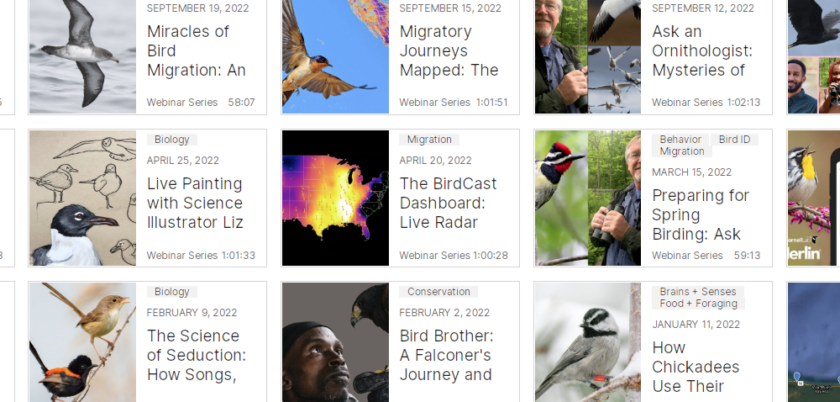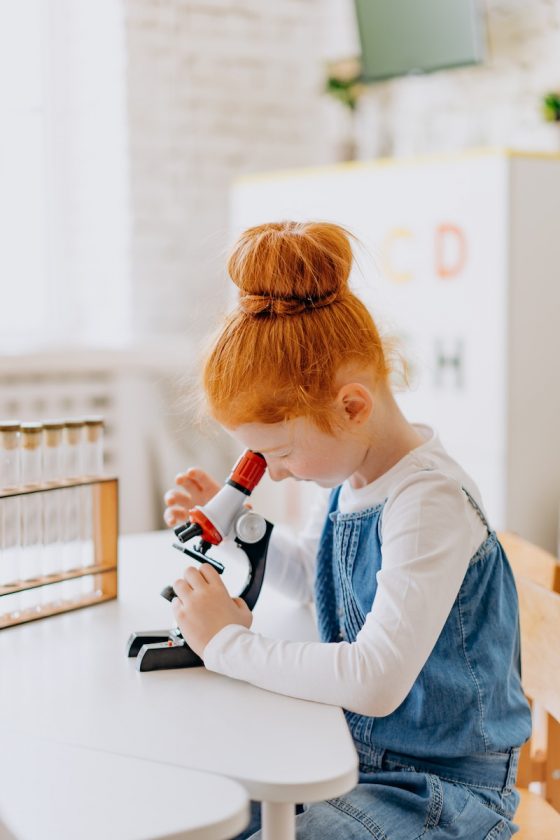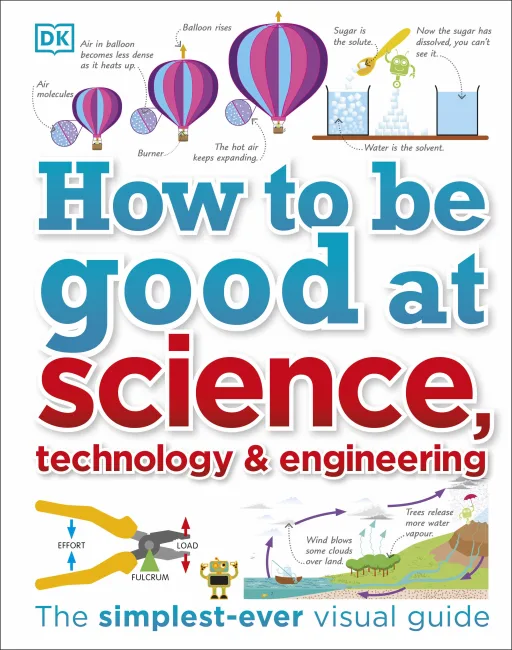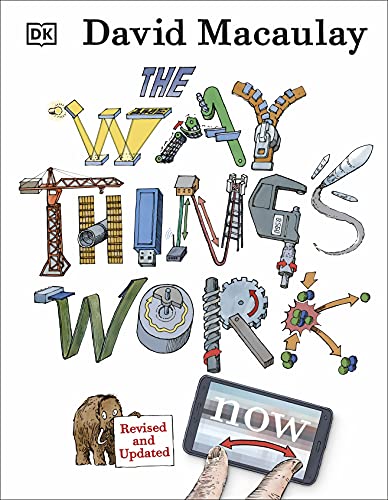When it comes to ‘science’ as an academic subject, a child’s enthusiastic desire to seek wonder is a teacher’s best friend and science is all about wonder! Without curiosity, science in itself would not exist. Nurturing and encouraging curiosity is the key to making homeschool science lessons fun and inspirational. This page lists books and websites that can help you curate an affordable homeschool science curriculum that learners will enjoy.
Primary School Science: Read science-based books
For younger home-educated pupils, sets of science books that give overviews of topics are a good introduction to ‘science’ as a subject
- Use science books as ‘reading’ books when reading aloud with young learners
- Read science books that are interesting to read, with good illustrations and clear diagrams
- Choose science books with a ‘story’ feel to the book when it’s read cover to cover (or per chapter) ..like this When Whales Cross the Ocean book.
Science, a core subject of most home-ed curriculums, is a subject that’s easier to teach the more learners understand the basics. ‘How to be Good at Science’ is a brilliant book to do this.
It takes students step-by-step through all science curricula covered in primary school and introduces the basics of concepts they’ll begin to explore in more depth in KS3.
As an introductory textbook for pupils to use themselves – the page design is appealing and is easy to use as a drop-in-and-out-of reference book. As a guide for home educators as to what should be covered pre-secondary school, it’s a book I’d highly recommend.
TIP: Simple yet thorough reference books like this are great home education tools to generate pop quizzes & to check for learning gaps.
Another good book for this style of learning/teaching is ‘The Way Things Work’, explaining the science of technology, machines and more.
DK reference books are, across all subjects, excellent. For older students, the Super Simple series are excellent reference books for KS3 Biology, Chemistry and Physics.
Everyday Home-Ed Science KS1-3
As homeschoolers progress through education, their scientific knowledge will develop as textbooks and more formal lessons are introduced, however, keeping a child’s interest in a subject is key to home learners remaining engaged learners. Good books are an easy way to maintain a home learner’s curiosity for a subject.
The Eyewitness series books are science books based on individual topics. The series can be used with young learners as well as into secondary school. Home education allows you to combine subjects when teaching specific concepts and these books are perfect for combining science with reading and writing lessons:
- Assign paragraphs/pages as copywork (to practice handwriting)
- Ask students to read and summarise a section (either in writing or as a verbal presentation)
- Practice using a dictionary to explain new vocabulary
(TIP: Consider encouraging home-learners to keep a personal vocabulary list that you can use to generate spelling tests)
- Combining science with other subjects can make a home-ed classroom more efficient and more interesting for home learners. Science can be taught as a lesson in itself or as the by-product knowledge from a lesson more in-line with a student’s interests. E.g:
- A ‘Herbology’ unit (biology) inspired by Harry Potter using this Plant book
- The Life of Pi novel combined with the study of oceans & maps, oceanic science, marine biology, human biology & nutrition; look at survival skills & nautical navigation (Joy of Museums has excellent resources for a nautical navigation project)
- The Martian (book – film) + biology/chemistry/space
Textbooks for Homeschool Science
Until homeschooled students are studying for a specific exam, which textbooks or resources are used to teach science is not really important. At KS1-3 level, science textbooks don’t vary that much in content – the difference is in the style of knowledge presentation and the assessment methods. Unless you are aiming for a specific exam (eg. I/GCSE Biology/Chemistry/Physics/Combined Science) – in which case it is important home learners study from the textbooks specified by the exam board – until this stage of learning, any recent textbook will teach what they need to know. Before purchasing new textbooks, why not purchase a couple of second-hand textbooks and let homeschoolers themselves decide which presentation format most appeals to them? Alternatively, download samples of textbooks in digital format and let them explore each one.
N.B Remember to ensure homeschoolers know how to use each reference book:
- Look at and decode any ‘key’ the book uses
- Explain how the book’s index works to navigate through topics
- Explain how to use the textbook’s self-assessment quizzes etc.
While not a textbook, the British Science Week activity packs are excellent homeschool resources that can be used to teach unit topics in the homeschool classroom or given to students as a resource to work through independently – great for Weekly Home-Ed Folders.
Science Kits for a Homeschool Classroom
Science kits are great ways to encourage the exploration of scientific concepts. Using science kits in homeschool classrooms can help spark interest in a concept/topic/subject. The experiments/projects are always fun and you can use the data & results generated to practice data analysis, recording data and analysing data skills – developing a skill set that will be useful to pupils as they advance through their scientific education.
The National Geographic Kits are consistently reliable for Earth Science kits, Snap Circuits are a brilliant introduction to electric circuits and Thames and Kosmos produce fantastic kits covering subjects from astronomy to chemistry.
As a membership to supplement a homeschool science curriculum and engage learners in practical applications of scientific concepts, KiwiCo Labs is a great option. The hands-on-builds, delivered monthly, focus on Exploration/Engineering/Invention and are suitable from age 6-16. These kits are an easy way to make homeschool science fun and engaging.
If you’re not looking for a subscription but individual science projects that teach/reinforce the concepts of a specific aspect of science, KiwiCo has a wide range of products that fit the bill. This Kinetic Speaker would make a brilliant practical physics lesson and a fun addition to a teenage bedroom.
For homeschoolers looking to replicate a school-style science curriculum complete with practical lessons across subjects, one of the best sources for science classroom resources is Vitta Education.
From molecular models for chemistry, anatomical models & dissection kits for biology class & practical physics kits to labware and science equipment, it’s a one-stop-shop for any home-ed science needs.
There are also a wide range of lesson resources on the Vitta Education website, useful for home-educators teaching science as part of a homeschool curriculum.
Online Resources for Homeschool Science
Primary School Science
Mystery Science is a brilliant website for young learners. It offers interesting, fun, short lessons and encourages learners to share their own science projects. Mystery Science makes science a lesson that’s easy to implement into a home-ed timetable (no prep, except printing lesson resources), and it offers a varied curriculum that home learners will enjoy.
An excellent website full of engaging videos, quizzes, science facts and experiments to try at home, NatGeo Kids is a fantastic resource for homeschool science for young learners.
The Experiment Library – Steve Spangler
For science activities to engage curious kids, the Experiment Library on the Steve Spangler website will keep science-loving children busy for hours. (N.b Most experiments will need parental supervision!)
Space is fascinating for kids and the Space Place website from NASA has a range of videos, activities & crafts to nurture that curiosity for young learners.
Online KS3 Science Resources
- PhET—PhET is a project by the University of Colorado Boulder that creates simulations of mathematical and science concepts based on education research. The resulting sims have a game-like feel that engages students and makes them forget they’re learning.
A fantastic resource for home educators (there are over 3000 teacher-created lessons on the site), PhET’s website is easy, safe and fun for home learners to explore.
(PhET lesson plans and simulations are available in multiple languages (115!) which makes it great for home educators creating a bilingual/ multi-language curriculum.)
- STEM Learning is a brilliant resource for home educators. If you are searching for a specific resource to teach a specific topic, this is a great place to start.
Providing lesson resources across sciences for pre-K up to A-level, STEM Learning guides home educators through what the curriculum for each year group would cover. Using the resource packages for chemistry, biology and physics, you can be sure your home learner will cover all statement areas. Home educators can use the resource packages to plan a home-ed science timetable for the year to ensure all ‘must know’ topics are covered. It offers comprehensive video lessons with accompanying worksheets on a range of KS3 science topics that home learners can easily work through independently.
Each topic resource package on STEM Learning consists of downloadable lesson resources, teaching guidance, activity sheets, and worksheets – essentially ready-to-go lesson plans to use in a home-ed classroom. For home educators, the tips and guidance notes on how to teach science are invaluable.
If you are looking for a ready-to-use, comprehensive science syllabus to use in your homeschool, KS3 Science is a great one. A video course covering all KS3 science topics, it’s a resource that home learners can work through independently.
This is the curriculum resource we’re currently using and our home learners love it. Easy to follow lessons, well thought out curriculum and the guarantee of GCSE success..it’s a great option.
The Royal Society of Chemistry
The education website from the RSC is a fantastic classroom tool for home educators. The classroom section of the website is aimed at teachers and is a resource that can help home educators feel more confident teaching chemistry at home. The website is packed with useful teaching advice, from tips to teaching science skills, to ideas on how to teach specific science concepts.
The resources section of the RSC website includes lesson plans, worksheets, quizzes and articles that make planning and teaching chemistry lessons easier.
Offering complete lesson plans and worksheets for students to use (either online or as a printable classroom resource), the website also has some useful resources for home-ed classes that introduce scientific equipment, academic integrity and introduces learners to the ‘being a scientist’ aspect of science.
An incredible list of online resources for life sciences and virtual dissection.
Via this list we discovered the Bird Academy from The Cornell Lab of Ornithology

For home learners interested in birds, there is a back catalogue of ornithology lectures and excellent resources for studying the anatomy of birds, including a flashcard-style revision model to practice labelling diagrams of bird anatomy.
Homeschool Science Extras
Science is a subject of awe partly because we’re often looking at the minuscule or the infinite.
A microscope can help make homeschool science more fun by adding a practical aspect to lessons.
If your home learners enjoy getting outside in nature, a portable microscope + nature walk combines fun and learning.
One of the best things about home educating is that there is extra time in the week. One subject popular with kids that school often doesn’t cover is astronomy. Space and the stars are magical; astronomy makes that magic come to life. If your homeschooler is curious about stars and the universe, a telescope and this excellent Astronomy Book can help them believe that dreams of being an astronaut might be achievable. (N.b The format of this book is perfect in the ebook version)
Lego is a great teaching tool! Lego builds can explain physics, bricks can be used to make models of elements, to explain atoms or an earth science concept (tectonic plates etc). If your homeschooler loves Lego and science (or needs encouragement to learn to love science more), a Lego STEAM kit could be a great addition to a home-ed classroom.
(Using Lego in a Homeschool Classroom)
Watch videos, TV and documentaries
about all kinds of science!
- DIY Science is fun
- Discovery Science Channel
- Science Max (and the book that accompanies the series)
- Operation Ouch! and Michael Mosley’s medical documentary series
- MythBusters
- The Mystery of Matter: Search for the Elements is a useful series for lessons.
- Cosmos: A Spacetime Odyssey
- Earth documentaries – Everything David Attenborough
- Professor Brian Cox is the Attenborough for space: ‘Wonders of the Universe’ and ‘Planets’ are fascinatingly engaging.
- The Great Escapists is really fun to watch.
(The accompanying books – Wonders of the Universe and The Planets – are excellent additions to a home-ed library)
N.B: The links on this page are NOT affiliate links. All book links take you to World of Books, a second-hand book company that offers free delivery in the UK; if a book is unavailable on World on Books, links take you to the publisher’s website.




